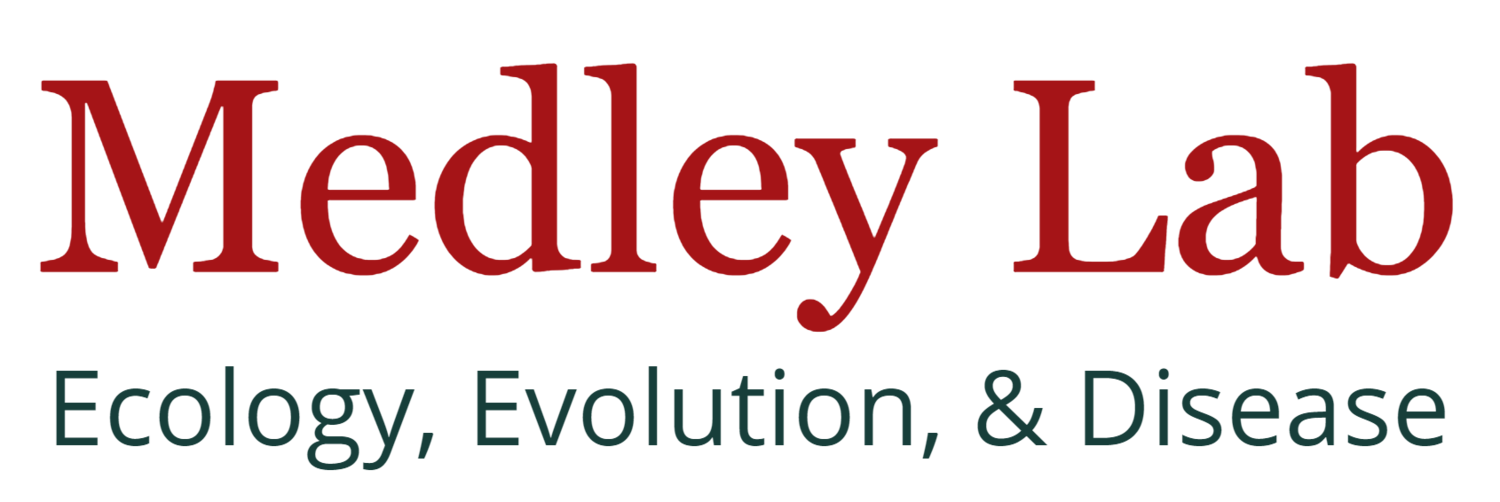Sep 12, 2019
Katie M. Westby
You are a rare human animal in this century if you do not often think about the food you put in your body. Should we only eat organic? Should we limit our food intake and fast intermittently? We are constantly bombarded with ads for junk food followed closely by dire warnings about what happens to our insides if we eat it. Whether the knowledge that your diet has health implications is instinctual to our species or a product of a lifetime of indoctrination, most of us know that a poor diet can make us sick and a hot bowl of soup can ease a cold.
It is not just our collective folk knowledge that leads us to these conclusions; scientists have been studying the impact of host nutrition on infectious disease for a long time. A newer area of research, however, investigates how host nutrition impacts the fitness of the parasites that infects us. While my preamble is clearly framed for privileged human populations, this idea can be applied to all organisms that eat and are parasitized, in other words, all biological organisms.
To learn more about the effects of host nutrition on parasites, my colleagues and I set out to test if hosts that were fed a high vs. low nutritional quality diet or a high vs. low amount of food had differences in the number of parasites that infected them or the size of those parasites. To do this, we turned to one of the world’s most reviled creatures, the mosquito, and a protozoan parasite that infects it, known as a gregarine.
Aedes triseriatus larvae (photo: Leslie Sterling)
Gregarine parasites in larval midgut (photo: Lexie Beckermann_)
We reared mosquito larvae on one of four diet treatments, two food qualities (crickets and oak leaves) and two quantities of those foods. We then experimentally infected our larvae with gregarines in the lab, allowed them to develop, and then counted and measured all of the gregarines that were able to successfully infect them.
Host food affects parasite performance
What we found was that both food quality and quantity affected the parasites, but not necessarily in the same way. Larvae that were fed that high quality, delicious cricket diet had half the number of gregarines compared to those fed the oak leaves. The size of individual parasites was affected by both the type and amount of diet. In general, mosquitoes that were fed a larger amount of food produced larger gregarines.
We also found that the number of gregarines present affected their size, but that this relationship was dependent on what diet quality the mosquito was fed. What this likely means is that the gregarines are competing with each other inside their host, but only under certain food conditions. To put this in privileged human terms, no matter how many of us are at the market, we will not fight over the avocados unless there is a shortage of kale.
The results of our study suggest that not only are we what we eat, but our parasites are too. Our study is far from the end of the discussion about how different food qualities and amounts impact hosts and their parasites, especially for organisms, humans included, that are generalist or omnivorous feeders. As if you didn’t already think about how your diet affects your health enough, now you know that your diet can affect the health of those that infect you.
Westby, K., Sweetman, B., Adalsteinsson, S., Biro, E., & Medley, K. (n.d.). Host food quality and quantity differentially affect Ascogregarina barretti parasite burden, development, and within-host competition in the mosquito Aedes triseriatus. Parasitology, 1-31. doi:10.1017/S0031182019000994


